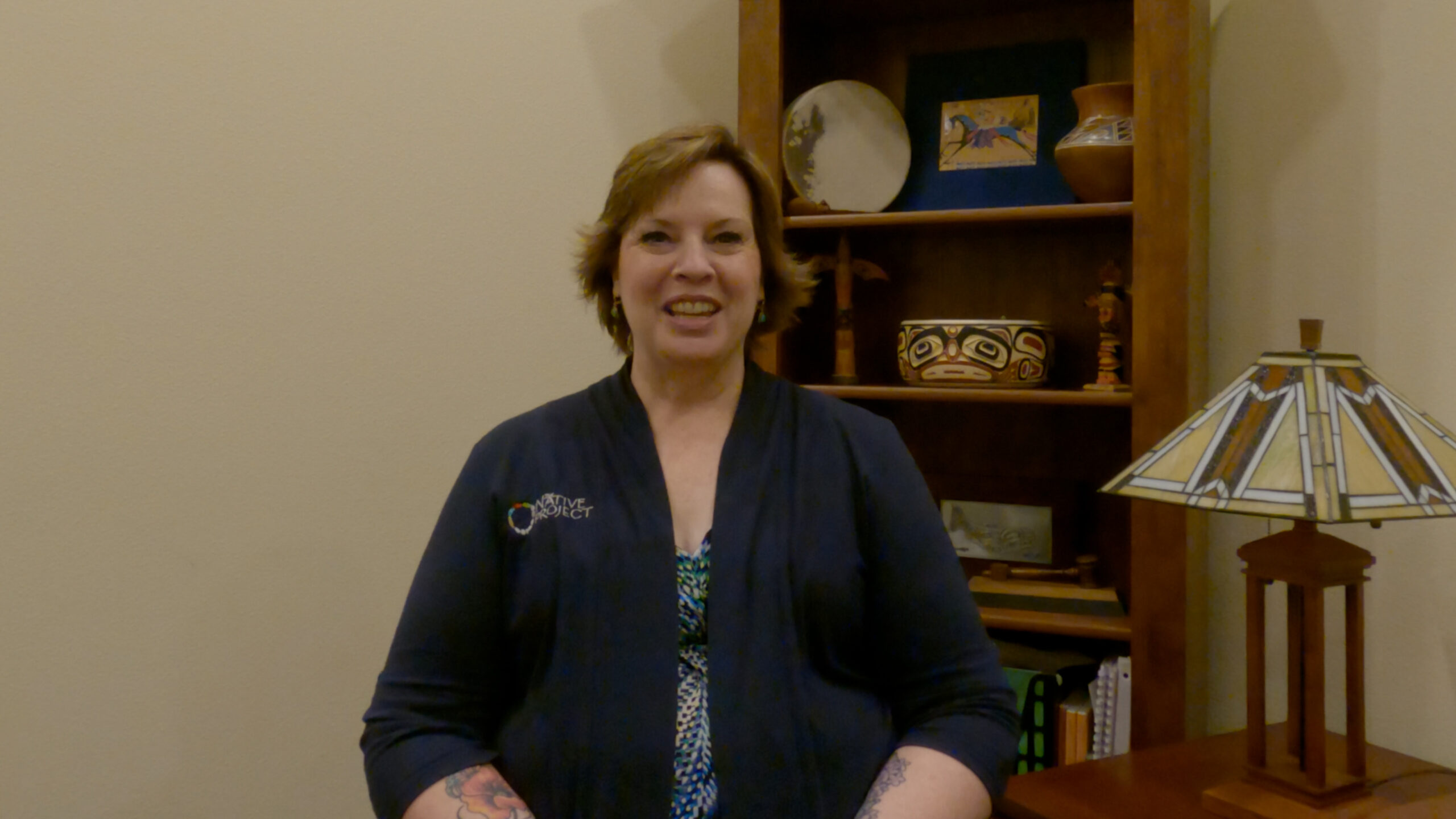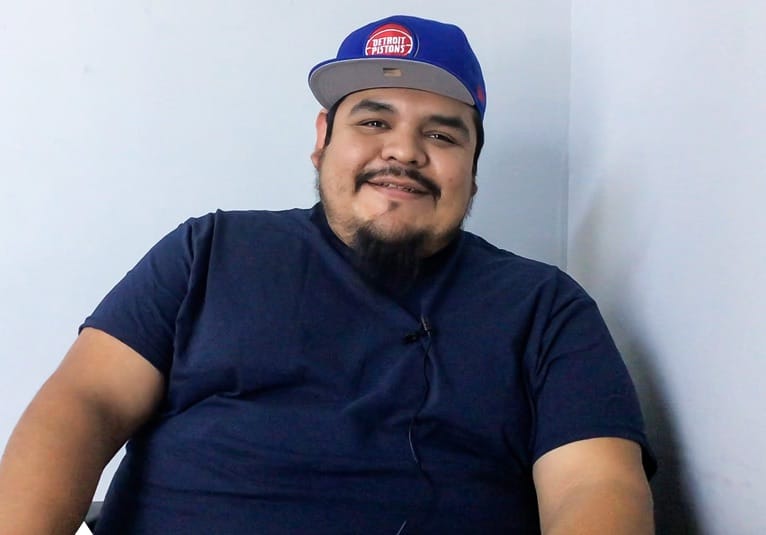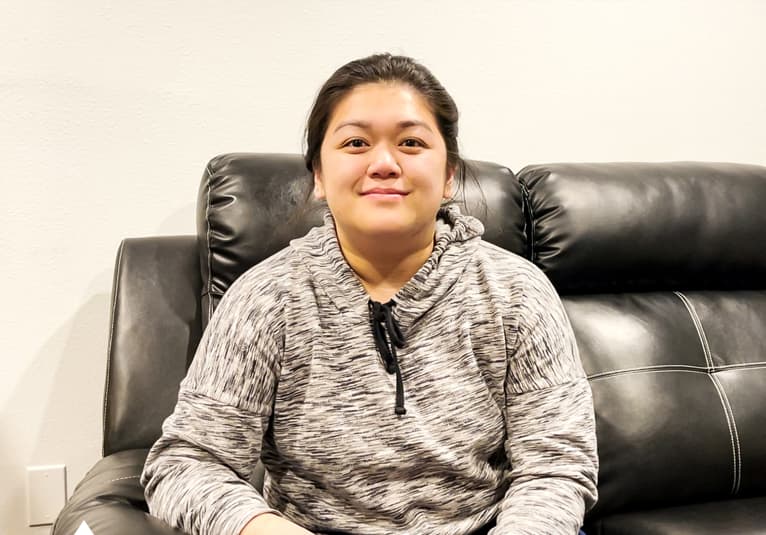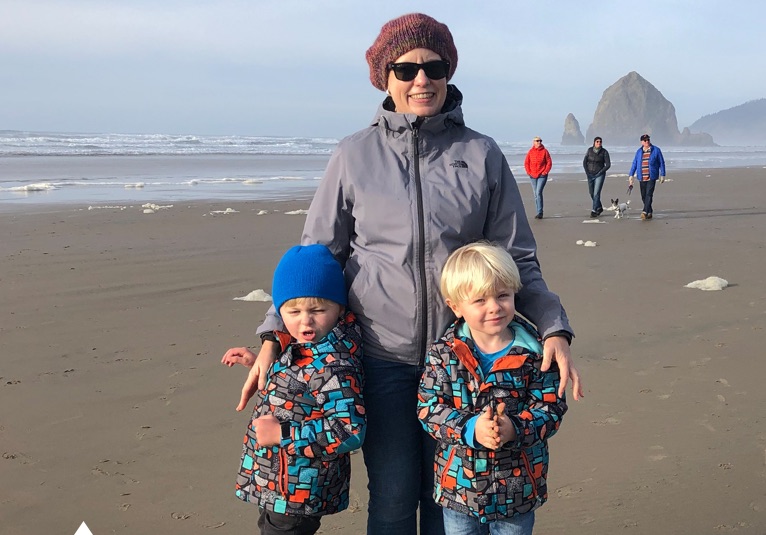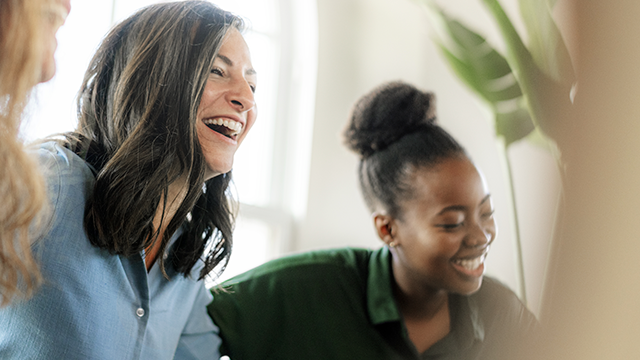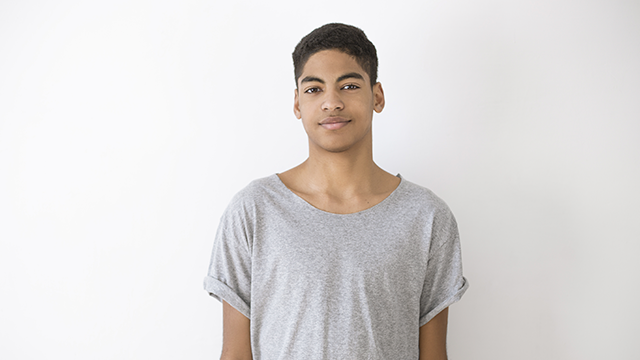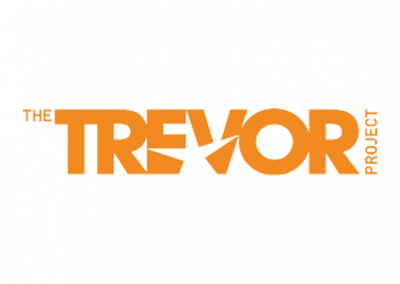Claire A Managing Emotions: Coping Skills and Tools
My name is Claire A, and I am the behavioral health director here at the Native Project. I’m a licensed mental health counselor, and I’m also a substance youth counselor, and I’ve been in the field for a very long time, 25 plus years. And today I’m going to be talking about managing emotions. So managing emotions to me really means responding rather than reacting. And often we have to figure out why are we overreacting or why are we responding in such a way that doesn’t make sense.
And especially over this last year and a half, this pandemic and the ongoing situation that we’re all in, who hasn’t struggled with managing their emotions? Even those of us who think we have great coping skills have definitely been tested over the last year and a half. I’ve worked with a lot of people over the years, and one thing that I always try and encourage people to do is really think about what is going on for them. And why are they reacting in such a way? Sometimes we can’t put our finger on it, especially over this last year and a half.
It’s been challenging to say the least, to go from feeling what’s going on. The fear overwhelmed, having to figure out how to get your kids home schooled. Perhaps you lost your job. And then, of course, the fear of the vaccine actually contracting COVID. All of the things that have gone on over the last year and a half and ongoing have definitely challenged us.
And at times we don’t know why we are reacting the way we are. So one thing I have worked with a lot of people about is trying to slow down enough to try to figure out what’s going on. Why are my emotions? You know, why am I feeling this way? Today?
Our emotions are often the roller coaster. And again, we don’t always know why we’re retracting and being emotional. But we know that for the most part, our emotions will go up, and at some point they will come down and level out. So how can we figure out our own coping skills so that we’re not doing a huge roller coaster all the time and that we’re able to get to a point where we can use a coping skill that’s unique to you and that works for you and that you can tap into when you find those emotions getting the best of you for a lot of people, it’s music lots and lots of people, no matter what age, whether you’re a little guy, teenager, an adult, an older person, we often tap into something about music that makes sense for us, whether that’s super loud music that just kind of blasts at you and you need to just kind of get get it going.
Sometimes it’s very mellow music.
Sometimes it’s a drum beat. Sometimes it’s a flute, and sometimes it’s the pop culture. It’s enough to sometimes distract you so that those emotions kind of start to calm down. You’re able to take a breath and then move on. So a lot of times it’s music.
For some people, it can be prayer. It can be meditation. I encourage people that meditate, for example, to practice meditation. When you’re not overly emotional, like everything we want to do better in life, you have to practice. You have to keep exercising.
That muscle and relaxation is no different. The more that you can practice whatever form of relaxation that works for you, the better. So that when you feel yourself getting worked up or something outside of you goes on and you don’t, you’re not able to control it. You’re able to tap into that mindful state of relaxation, you know, breathing deeply and being okay, feeling comfortable and then being able to respond rather than react. For a lot of people.
For myself, this is a good example for myself. I practice meditation in the car, back and forth to work. No better time, right? Especially if you struggle with road rage. But there’s no better time than to either tap into the music that you like to listen to.
Pay attention to your breathing, pay attention to your heart rate, pay attention to. Are you overly warm? Are you calm? Do you feel in a calm state if you meditate? Sometimes people have what we call a mantra, which is just a really simple saying.
Mine is, I breathe in and I say I am. And as I breathe out, I say to myself, calm, simple, right? I can always remember. I am calm. Nothing complicated about it, but I can practice those deep breaths, breathe in, I’m calm breathing out, or I am breathing out, UN calm.
And I know that for myself, whether I’m going into a meeting or I’m driving or again having to deal with the ongoing COVID situation, I can take those deep breaths. I can remind myself of my meditation of my mantra, and I’m able to calm down. Then you’re able to also deal with other people in your life, a lot of your parents, a lot of your caretakers or Guardians. And so you have other people that rely on you, and you often are probably someone who puts your own needs behind everybody else’s.
And I would encourage people, you know, it isn’t selfish to do self care.
It’s really more about self worth, especially if you are in charge of other people, whether that’s at work or at home or both. Putting yourself first is the most important thing you can do. We’ve all heard the analogy about if you’re on an airplane, put that oxygen mask on first so that you keep breathing so that you can help somebody else. Boy, is that more true than ever right now, during the pandemic, you absolutely need to do that. Self care.
Managing your emotions is part of selfcare learning how to manage your reactions so that you don’t lose it so that you aren’t finding yourself screaming at the top of your lungs at the end of the day, and then everybody goes to bed upset or the beginning of the day. So finding that time and it doesn’t have to be a huge amount of time, all of us have five minutes that we can say, you know what? I need to focus. And again, finding whatever it is that works for you.
Because once you’re able to get in touch with what works for you, you’ll be able to help those little ones or those teenagers or your husband or wife or partner to also kind of work on their own what works for them.
And so we grow up. We have to learn how to manage our emotions at two or three or four. It’s okay to temper tantrum, but by the time you hit school, it’s no longer okay to have a temper tantrum who was an adult, hasn’t had a temper tantrum. We just can’t have them every day. So we know how to manage our emotions.
On some level, this pandemic is completely out of the norm, the ongoing stress that we’ve all experienced. It isn’t the norm for anybody having to wear masks, having to get our children to wear masks, getting the vaccine. And hopefully, if you choose to do that, taking care of others. Unfortunately, losing a lot of people and managing our emotions when we do have loss has also been difficult. During this time.
We haven’t been able to have the celebrations of life that we normally would have. And so it’s difficult to not only deal with loss, but also how you manage that emotion, of losing someone forever and not being able to possibly gather together with all of your family, not being able to travel all of those things. They’re huge, and we can’t ignore them. We have to figure out how to take care of ourselves. And we know that some things are having to be put off.
Our emotions can’t be put off. And if you have a really bad day, it’s important to say to your family, to your coworkers, to whoever you’re around. I’m having a tough day today. I need a little bit of space. Give me some Grace.
We talk about that here at work. We have a medical clinic. We talk about giving each other Grace. And all that means really is giving them space, not reacting to their reactions and just even saying, you know, it’s okay. I’m here.
You need to come in vent. You need to just fit who doesn’t need that, who doesn’t need just someone to be in that corner. And now, if you’re someone who doesn’t have a whole lot of people around, you try to find some way to get ongoing support. I know we’re probably all sick of virtual. We’re all sick and Zoom meetings, but you know, one thing that has happened during this, we’ve learned that the distance isn’t there anymore.
You can get into a meeting, you can find a way to have a support group. And even if you can’t meet in person, you can start to still develop those relationships through meetings. Many places offer those chat rooms, things that other people are interested in. You know, we joke that a lot of people, my son, for example, has become he loves plants now. So there’s lots of things you can do here on Facebook.
You can find groups that talk about raising plants inside, you know, the different things, and we’re having to learn unique ways of how to be in contact with other people. And I think, you know, it’s awless of pandemic is and has and continues to be. It really has stretched us all, and we’ve had to think of other ways, whether that’s being more self efficient, being able to tap into resources that we probably may not have even thought out before, and definitely when it comes to support finding the support, you know, your co workers are going through this as well.
Your siblings, your husband, wife, partner, the children. We talked about the children a lot here at work.
We worked with children. Their lives were turned upside down, just as yours was having to suddenly not be in a social setting of school, which is exactly where they should be developmentally. And that ended overnight for a lot of us, the lockdown things ended overnight. We’re trying to open back up now cautiously. So getting kids ready to go back into a social setting has been a challenge with also the idea that, you know, potentially we could go back to online school and how to manage that roller coaster of emotions.
Children locked out on a lot last year. You as an individual lock out on a lot. So it’s not about ignoring your emotions. It really is about being in the moment, trying to be aware of your emotions, trying to find coping skills, whatever that is that works for you. I have many dogs.
I go home at night, they don’t know what’s going on. They’re just happy to see me. So if you have a pet, if you have some way of taking care of an animal, taking care of plants like my son or whatever, that is something that works for you and also being taken easy on yourself, this is not the time to be overly cautious or overly critical. I should say of yourself, we’re very hard on ourselves. No one’s harder on you than you.
This is not the time to be that critical in a voice. This is the time to say, you know what I’m making it through. I am getting up. I’m getting dressed. I’m going to work.
If I go to work, I’m doing what I need to do. And some days are better than others. And on those tough days, that’s the days to really take it easy. And on the days that you feel great and you want to get out there. Great get out there.
But really be kind. Number one to yourself. Number one to yourself. And then be kind to those around you.

